Welcome to Moda Fabrics!
Victoria & Albert's William Morris...
Victoria & Albert's William Morris...
William Morris wasn't a quilter. But he could have been.
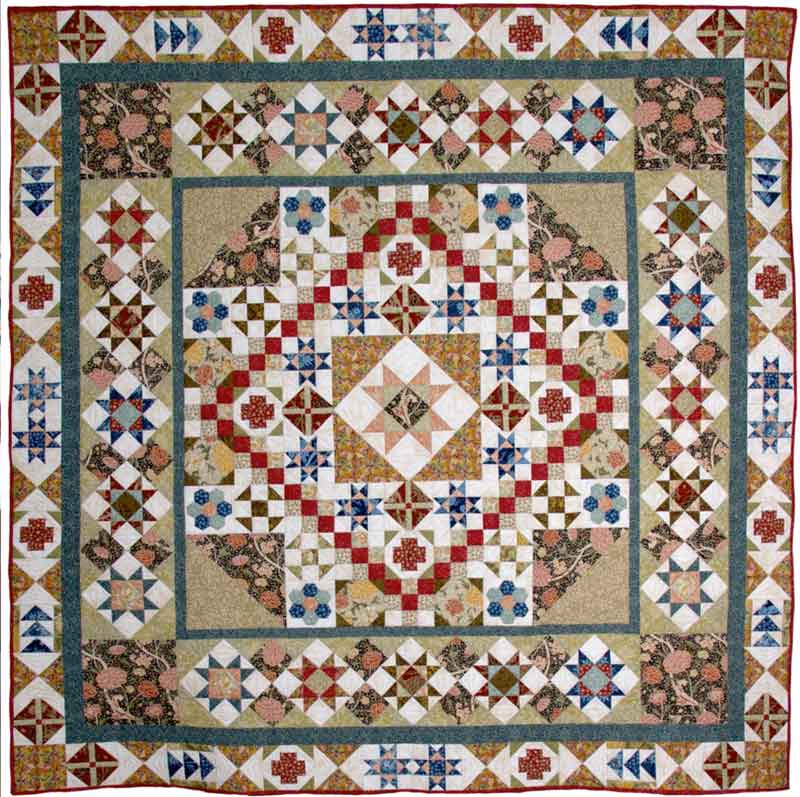
We're thrilled to have the opportunity to work with the Victoria & Albert Museum in London... mostly because it has meant getting to dig through their archives of vintage fabrics and textiles. (Or some of us anyway.) When it came to "what to do first", William Morris was an easy choice. He was an artist who created extraordinary textiles for the home. An artist, textile designer, poet, social activist and one of the most important figures in the British Arts & Crafts movement. The beauty of his designs and his timeless color palette make his designs suitable for quilts, garments and accessories.
The quilt shown above was inspired by the famous Sundial quilt in the V&A's collection, it celebrates the medallion-style that was popular in England during the 1800s. (It measures 75" x 75" - though it can easily be made larger simply by adding a border.) (Thank you to Sarah Huechteman for piecing this William Morris Medallion quilt, and to Maggi Honeyman for quilting it so beautifully.)
The pattern-instructions to make the quilt are being presented in a journal-style booklet that includes detail on the fabrics used in each block, pages for notes and other tips.
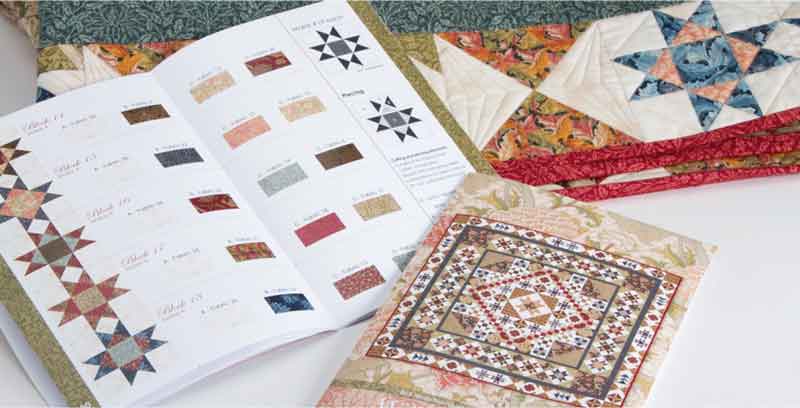
Made with less than a dozen different blocks, the William Morris Medallion quilt looks more complex than it is. That's a good thing, right?
While William Morris might have created his prints more than a century ago, the fabrics in the collection can be used to make garments and projects well-suited for today's contemporary style.
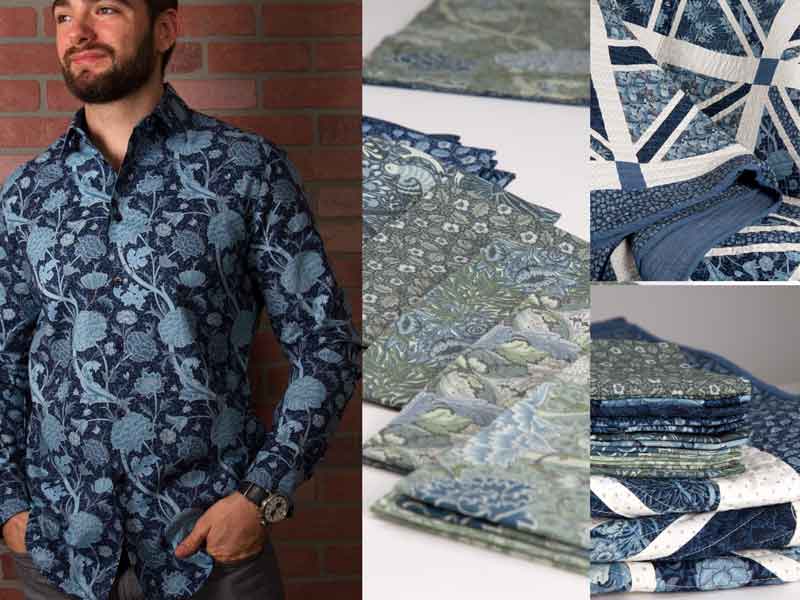
Shades of blue and indigo are everywhere! They're on the fashion runways and filling the pages of home decor magazines and catalogs in shades ranging from the darkest indigo to the faded blues of our favorite pair of old jeans. Our own fashion-forward, always-on-trend Moda man, Josh Dunn wanted a shirt. (He chose this Cray print.)
Because William was from the UK, and because the Victoria & Albert Museum is in London, we knew we wanted to make a Union Jack quilt. The pattern we used is Jumping Jacks by Joanna Figueroa of Fig Tree & Co. (Thank you to Melissa Corry for making William's Jumping Jacks quilt.)
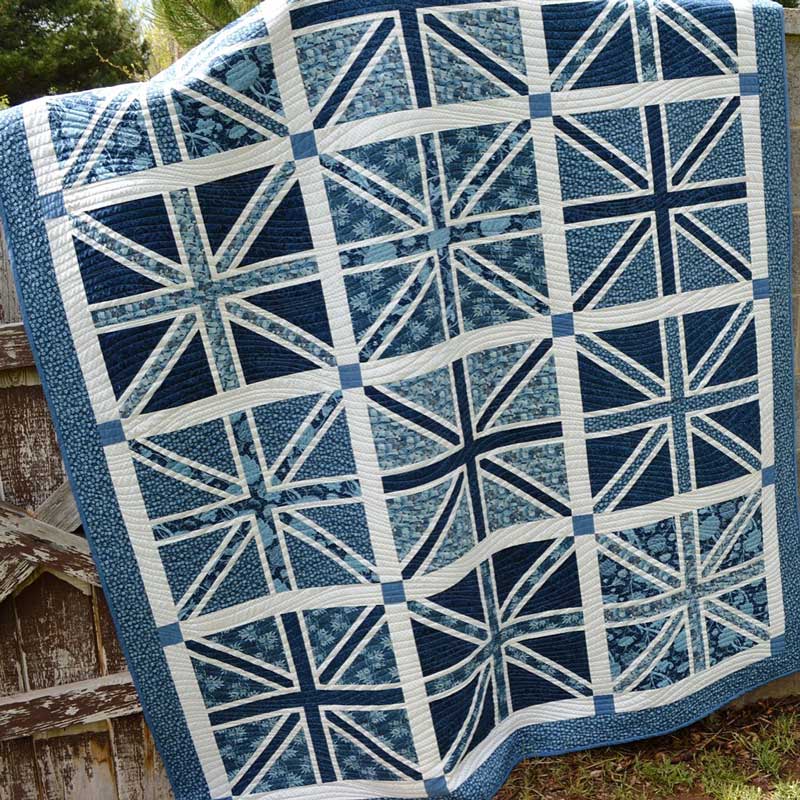
Note: While the pattern is written for fat quarters and yardage for block sashing, we used 7/8-yard cuts of the six Indigo prints from the collection, Moda Chambray in Royal for the cornerstones and binding, and the Silver on White Dots from Essentially Yours for the background. The finished quilt measures 71" x 84.
One of our favorite parts of the collection are the prints in lighter, softer colors. Maybe it's just me but when I think of William Morris, what comes to mind is his darker, richer color palette.
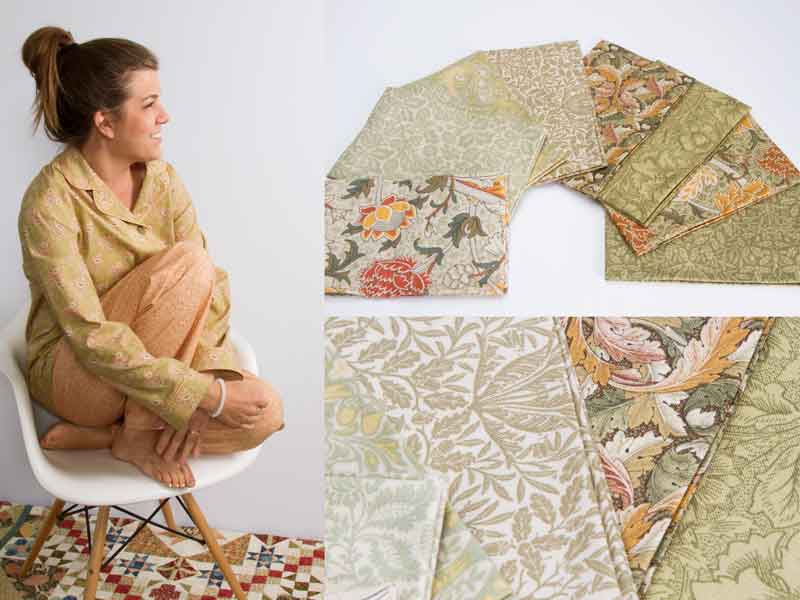
Cream, Parchment, Sage, Rose and Sea Foam. How beautiful are these prints? (We think Angela had something to do with those pajamas being made in her size... sneaky.)
This is the William Morris palette that I think most of us know best - Ebony, that dark, lustrous shade of black.
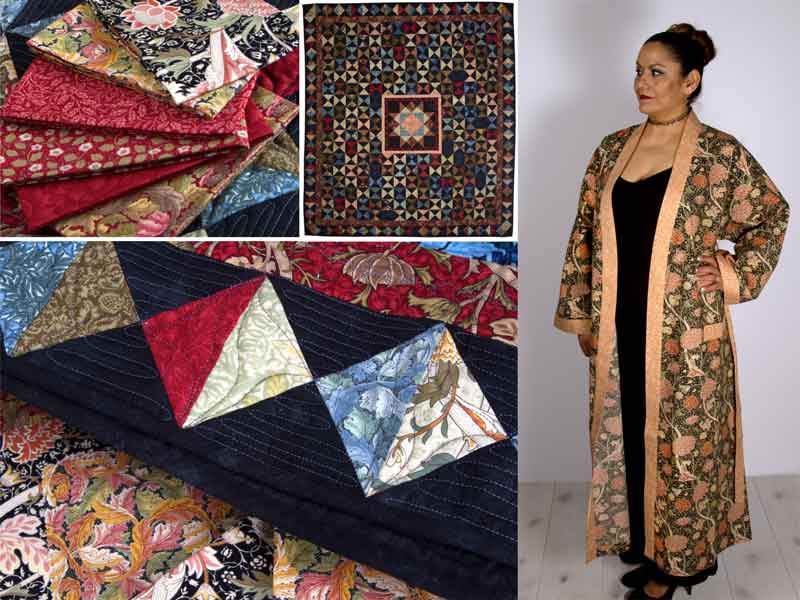
The most dramatic of William Morris' prints is Cray. It has been reproduced for the V&A's William Morris collection in eight colorways and while each is striking, I think it is the Ebony that is most emblematic of the William Morris style.
It's why we chose Ebony - in this case Grunge in Black Dress - for the background of this Hourglass Medallion quilt.
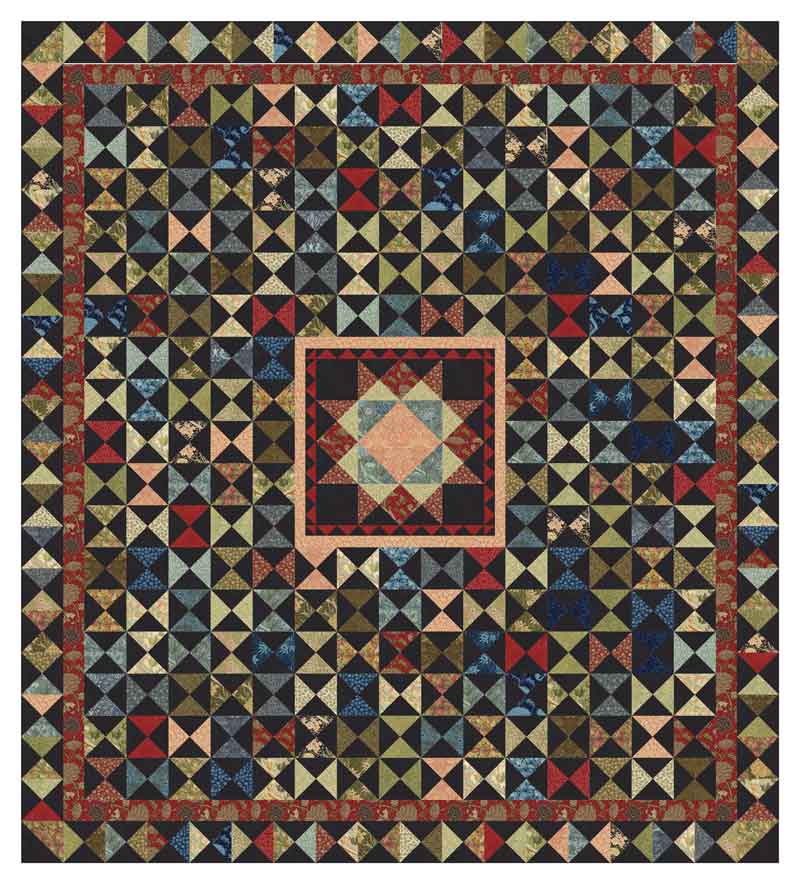
Using 33 of the prints in the William Morris collection in an assortment of fat quarters, fat eighths and yardage, this Hourglass Medallion quilt measures 76" x 84". (The instructions will be available as a project sheet.) (Thank you to Dawn Cornell for piecing the Hourglass quilt.)
So after months of waiting, the William Morris collection created in collaboration with the Victoria & Albert Museum is finally here, and it will be in shops in another week or so.
I know I have a few pieces stashed.
Happy


Comments